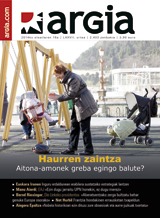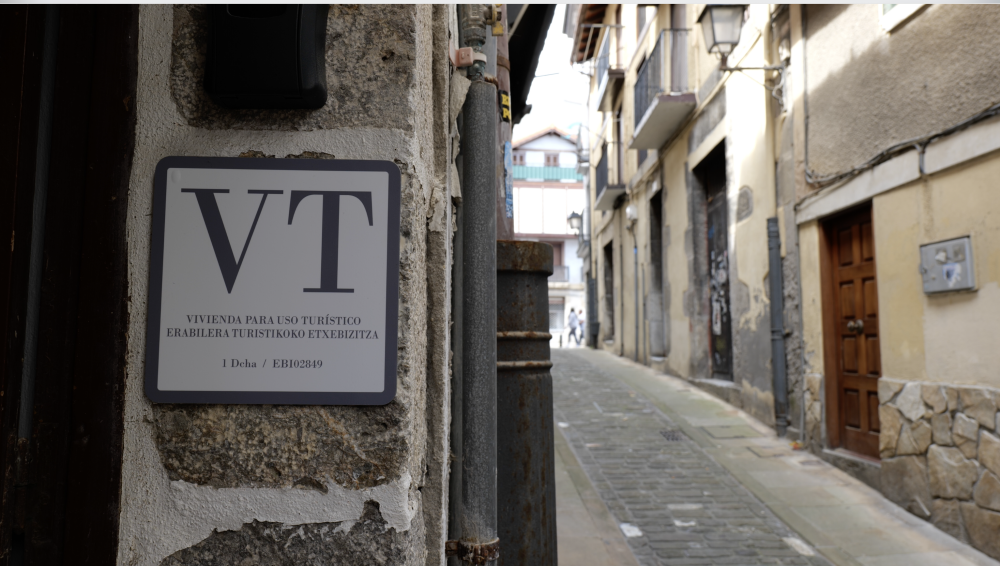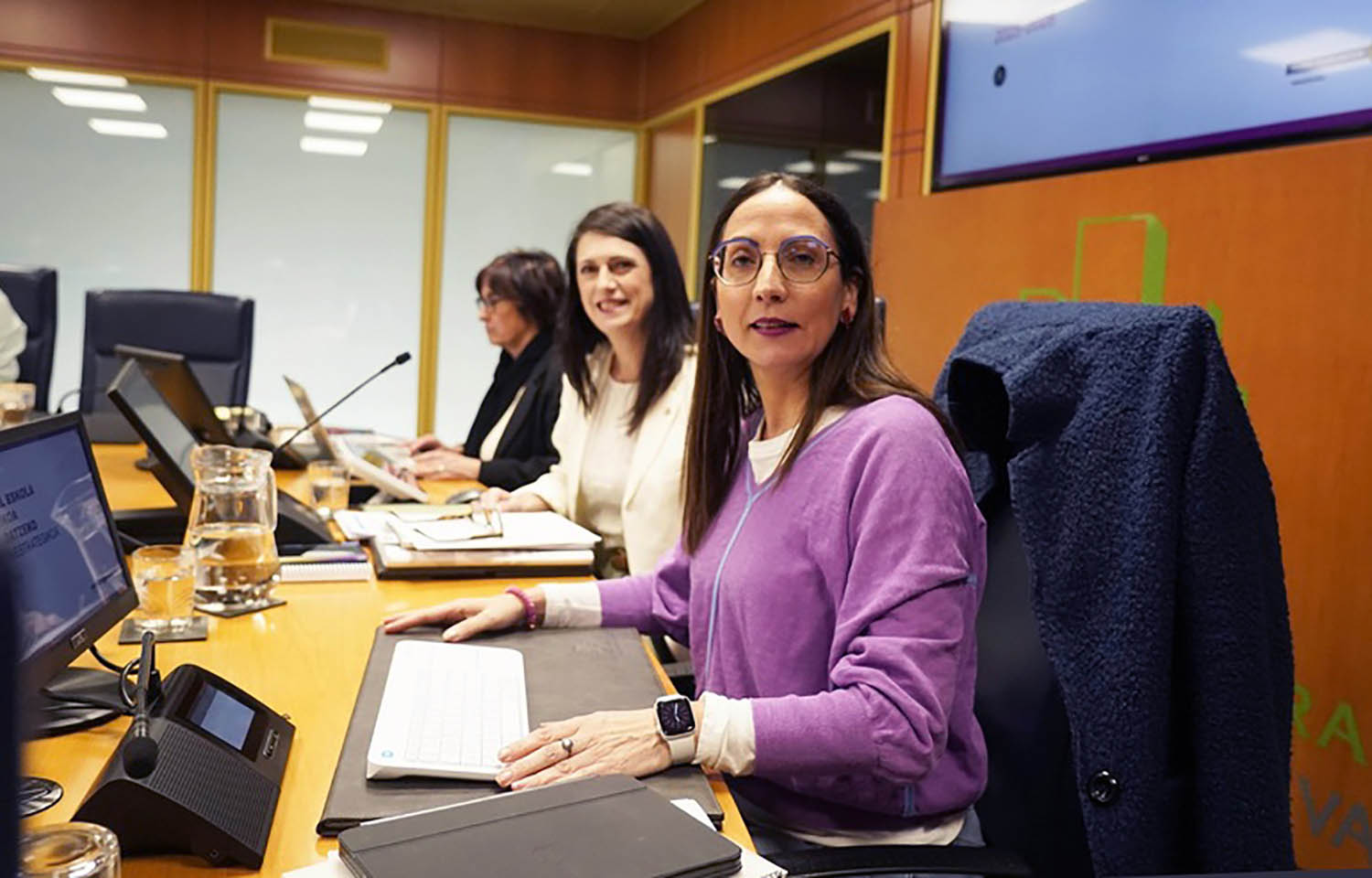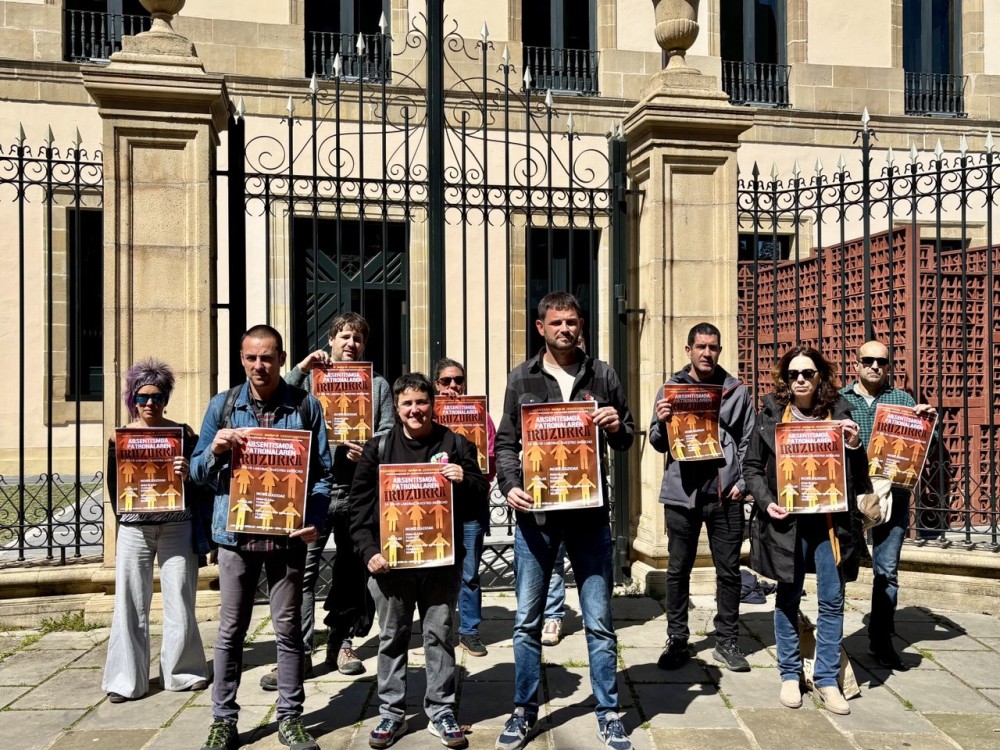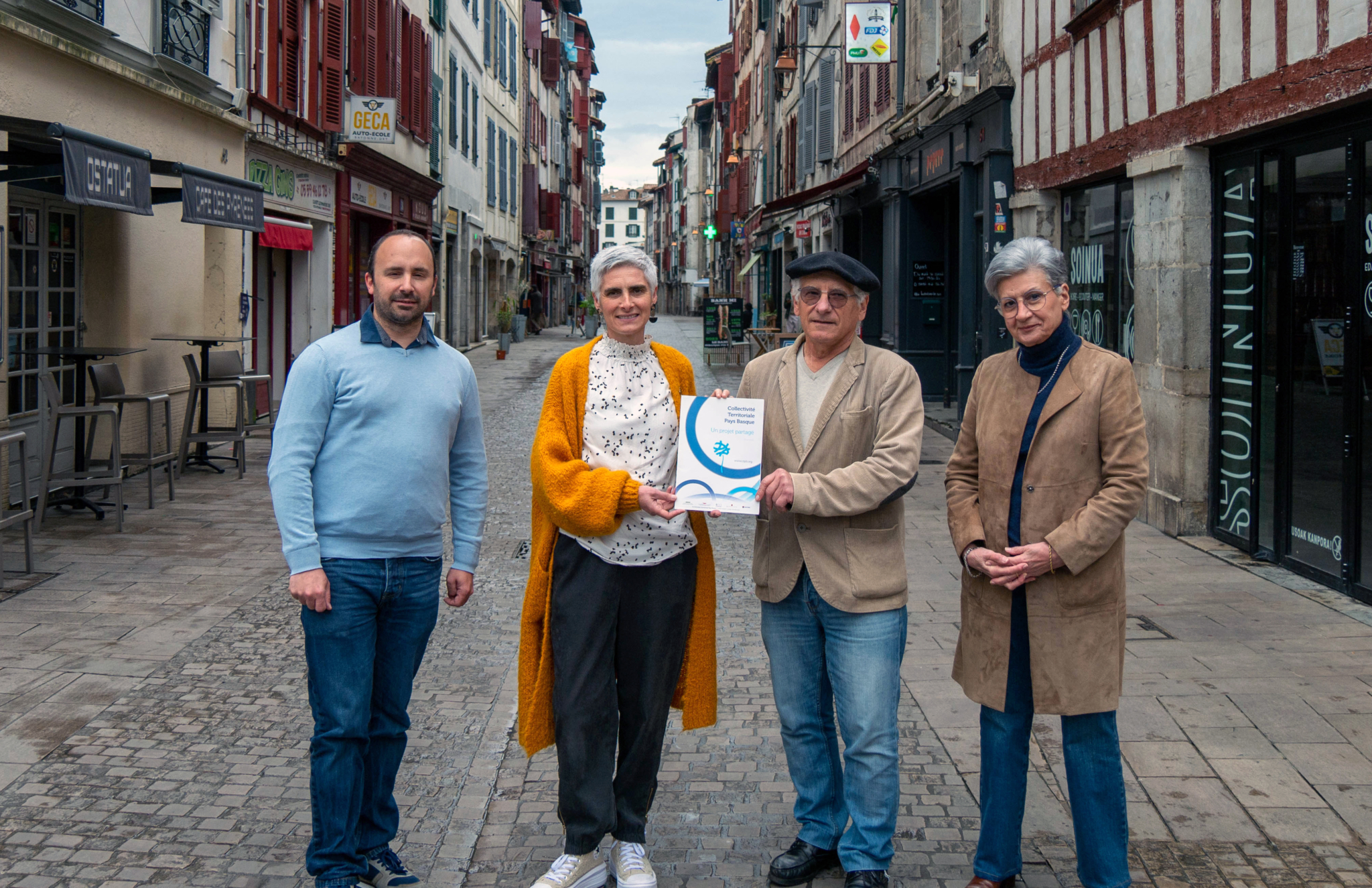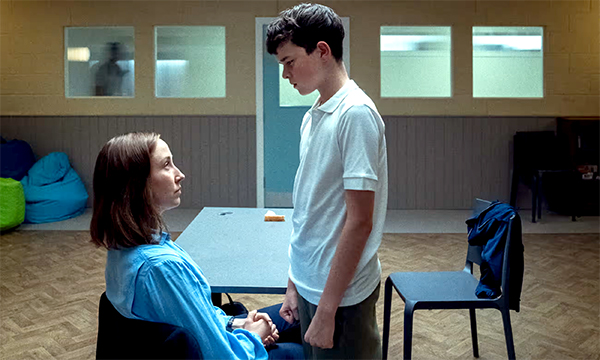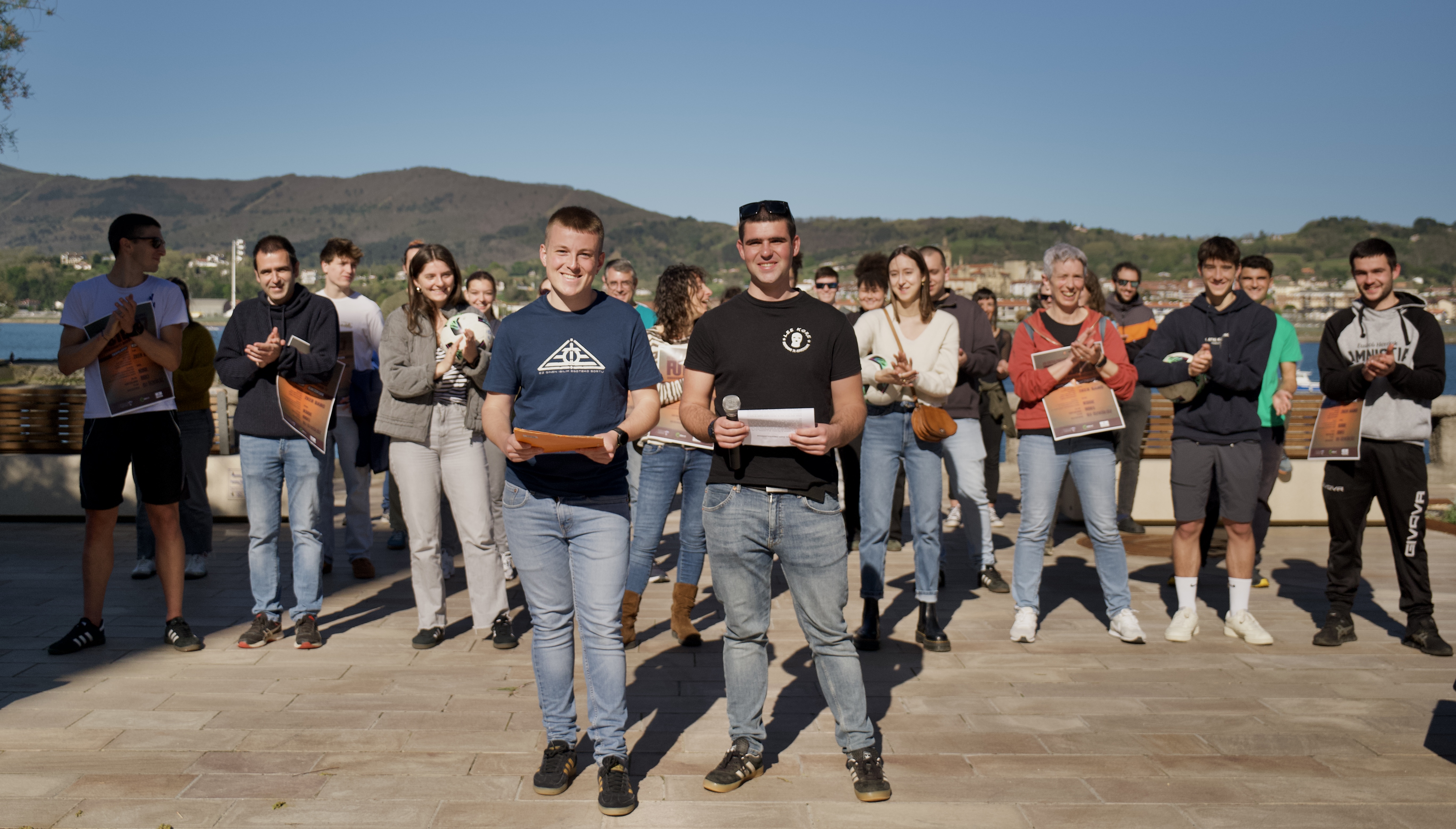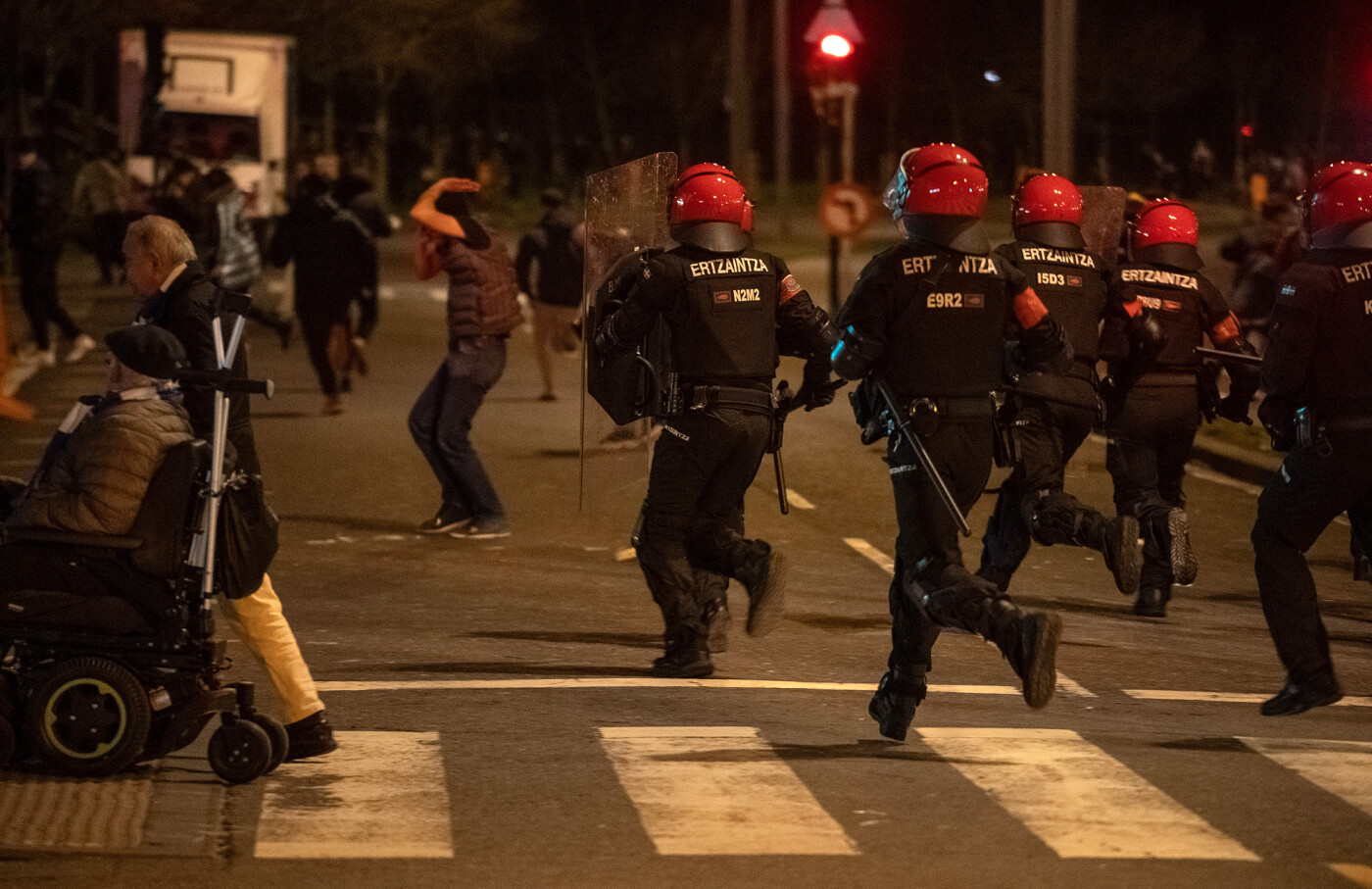Where are the parents?
- If grandparents and grandmothers went on strike? Who takes the grandchildren to school? Who will feed them? Who are you going to go to the doctor? Since women have jumped into the labour market, the care of children and the elderly has been compromised. In the absence of a determined policy to respond to the new situation, parents patches. Grandparents have become child star caregivers.
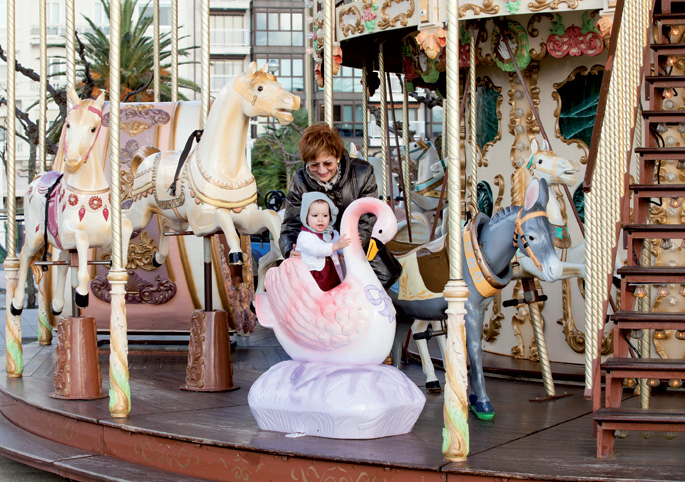
Parents have to design complex strategies to care for their children. For many hours a day they are linked to the labour market and children have to “place” somewhere. The most used resources are: grandmothers (and grandparents), raised, nurseries, schools and after-school activities. In the conciliation policies promoted by the public institutions there are two other resources: reduction of working time and leave. According to the study published by Emakunde in 2007 (Surveillance Conclusions. The reconciliation strategies in the daily lives of the people and women of the CAPV), the strategy of reconciliation between care and employment most important are grandmothers. There are very few fathers and mothers who in their daily lives are able to adequately combine care and employment without using this resource. Often, the disposition of grandmothers and grandparents is the basis of the care strategy and from there the rest of the care scheme is articulated.
In the Emakunde study, discussion groups were held, which evidenced that mothers would prefer their grandparents and grandmothers to be no more than collaborators for the unforeseen. For example, grandparents would receive them when children get sick, and not every day. In the discussion groups, the mothers are the following:
– It seems to me that yes in a special but non-stop moment... It does not matter whether they are young or old; I believe that this time has passed and that the time has come for them to retire or to rest. Or at least don't have a schedule. The grandson is very good for a moment, for an afternoon, but for the whole day...
– Let it not be an obligation.
“Yes, children are joyful, but if they’re annoying to us, think about our parents.
Mothers want their fathers to accompany them in concrete situations, but they know that in daily life they are much more than collaborators. The participants in the discussion groups recognize the difficulty of defining the boundary between abuse and love, even more so in a society in which the family fabric is so important that most grandmothers are willing to help.
From an economic point of view, grandmothers and grandparents are those who are in a more precarious economic situation without access to payment resources. However, the members of the discussion groups warned of the existence of some kind of abuse. In other words, fathers and mothers who do not have serious economic problems also resort to their grandparents and grandmothers, and that the money is spent on other needs that are considered “second-rate” and in leisure time (e.g. on holidays), rather than on childcare. A mother says: “There’s a lot of abuse, but you have to know how much you can leave your children with your parents or your in-laws. Everyone has to know what limits they have in their family. I think there's an abuse going on if you see that your mother can't do it anymore and that she's doing a favor. That is, when you are taking advantage of it.”
Grandma, grandpa, and in general, caring for the family network has some consequences. The analysis emphasized three aspects: First, the participants used the word “slave grandmother” to refer to an unfair use. In the name of solidarity, intergenerational aid and, above all, gender-based affective bonds, abuses are committed. Secondly, unpaid surveillance is being carried out which conditions, on the one hand, the quality of paid care and, on the other, limits the effectiveness of public institutions' policies with regard to surveillance/employment strategies. In the absence of another option, “the account is still working”, said the participants, “the model is reinvented and maintained”. Thirdly, thanks to the work of the informal network, parents save costs and have more money for consumer goods and services.
Children no longer grow as before
What's happened to make the parks full of grandmothers and grandparents? Why are they taking care of the second pins? We asked Marta Luxan, professor at the University of the Basque Country, demographer. It has helped us put the new landscape of child care in place. It highlights two main changes: what we understand by care today and the redefinition of ages. We're going to develop the two ideas.
Yesterday and today, children don't take care of themselves, grow up, get educated in the same way. Today, care for children is given a lot of importance, although that doesn't mean it didn't have the first weight. But let's imagine the day-to-day and present of the children of just a few generations ago. The children then used to be lonely for longer, the school trips were often made without the help of adults and were “lost” along the way. Now, they're barely left alone, somebody waits at the door of the school to take it home, or to the music school or to the swimming. He almost always has an owner next to him.
The responsibility of children has gone from more collective to more individualized. Every family tries to fix the care of their little ones in the way they can. Not so long ago, it was common for children to play in the street and for mothers to observe alternately out of the window. Luxan tells us about individualization and the intensive maternity model. According to this model, the needs of the child prevail over those of the mother. All responsibility lies with the mother, every decision is very important and every error has a heavy burden. It is a very demanding model with the mother and has consequences for her grandparents and grandmothers. If the mother has a job and her partner too, who will better care for the child? The ones at home are grandmothers and grandparents, if we compare it to the day care center or the caregiver for payment. Grandma would be the best alternative to mother.
The second big change is age redefinition. , Nowadays childhood is long, times are not so old when at 11-12 years they were raised and raised; imagine the 12-year-old boy working in the strange house. In addition, we have our grandmothers and grandfathers in good shape. They're healthy and active, children don't think they have exhausted parents, let alone. A few generations ago, it was not so common to keep grandparents alive, let alone healthy.
A third element has added Luxan, one of the keys to understanding care strategies: the importance of the family network in our environment.
Suffocating situations arise when it comes to caring for children and remembering one of the most extreme: the one that is going on to the so-called sandwich generation. Parents and grandchildren are caring at the same time. In Luxan's words, "they can't do more, the burden is very large. So big, they say among women, that when the time comes they prefer to go to the nursing home so that their children do not suffer what they are suffering.” The teaching staff of the UPV/EHU has focused on women, since although more and more grandparents care for children, older adults are more cared for.
Compulsory custody
Demographer Marta Luxan does not doubt the value of the relationships between grandchildren and grandmothers, but one thing is that they take care of themselves with delight and another that is obligated. It often becomes forced labor in the name of love.
We have asked him whether it is not the most appropriate thing for each to claim good public services instead of solving the problems of his home. For Luxan, the truth is that parents are not for care, and the question should be: “Where are the parents? What are they doing? At the heart of this society there is employment and capital, we are going to put life at the centre. Surveillance is very important. We often think that the two extremes need care, the children and the elderly, but we all need it. The welfare state is falling. A lot of things are left in the hands of the family, for reasons of care. Okay, grandparents now aren't 40 years old, but that means they're forced to do care tasks."
In the Mediterranean model, family caregivers are
Mila Amurrio is a professor at the UPV/EHU, sociologist. She proposes a reflection: “How is it possible that in the Spanish state the birth rate does not increase?” He compared the Spanish State with that of Norway, where he served as president. Women have jumped into the labour market and have practically reached the European average activity rate. In Norway, for example, there are similar figures, but the birth rate is higher. Also in the French State. In some countries in northern Europe, and in others, when it comes to care, the family is not placed at the centre of life. Compared to the South, in the Northern Basque Country, there is a greater readiness for aid and contributory surveillance. Amurrio makes a general reflection: “The choice is always for the woman, she doesn’t have to sacrifice anything in the employment itinerary, the woman is more protected.” From then on, you will have more time to care for your child at home, you will also have financial support, and an important account will be guaranteed to return to the labour market. In the Mediterranean countries it focuses on the family network, which will be asked for help in the first place and, if it fails, then the administration appears.
By not matching the hours of surveillance and production, parents have found solutions of all kinds. In addition to the family, Amurrio has highlighted the importance of hiring workers and reducing working hours. The upper classes have always resorted to payment care, even the middle classes, waiting for the wave of the crisis to catch them. The precarious economic situation and the inability to access two different salaries, that is, to maintain the standard of living (housing, leisure...) it takes a couple of employees, so it is not possible to access the care work. The other option is not to work full-time, with one foot in the work center and another in child care at home. Almost all women have benefited from this option. In Amurrio’s opinion, “in general, men have not made the same approach when it comes to linking care and employment, even though they have started something. Anyway, they are also in the production world and have working hours.”
The crisis of care is on the surface. Reconciling care and employment is a difficult exercise. If public institutions do not implement more daring policies, or if, as Marta Luxan says, they do not put life at the centre of society instead of employment, there will be no balance, and grandmothers and grandparents will continue to wait for children in parks.
BIEN ETXEAN EGIN DUGU HITZORDUA. Kepa ebakuntza txiki bat egin berri dago, eta atsedena agindu dio medikuak. Seigarren biloba jaio da eta pena nabari zaie, haurtxoaren lehen egunak ez dituztelako gertutik bizi, Zestoatik Zarautzera joan beharko bailukete horretarako. Biak dira umezale amorratuak, ordu asko igarotzen dituzte bilobak zaintzen, baina ez dira biak iritzi berekoak aitona-amonen zaintzaile lanez. Hitz egiten hasi aurretik utzi digute argi ikuspegi desberdina dutela.
Eli hamazazpi anai-arrebetan laugarrena da, neska zaharrena. Ondorengoak zaintzea egokitu zitzaion, eta gustura egin zuen lan hori. Berak hiru seme-alaba izan ditu eta sei biloba dauzka. Senarrak hala dio: “Berarentzat ez da gauza berria, hiru belaunaldi zaindu ditu”. Elik seme-alabei lagundu beharra sentitzen du, “badakigu bestela ezin dutela aurrera atera. Gure eskuak behar dituzte edo beste esku batzuk, baina behar dituzte. Nik ere banituen esku batzuk, aitona Eliseorenak”. Aitona etxean bizi zen eta egoera zehatzetan haur bat ez bazen bestea haren esku lagatzen zuen. Laguntza ederra zen, 24 orduz zegoen aitona etxean. Hala ere diferentzia bat jarri du mahai gainean: “Hori bai, Eliseok esaten zuen ‘gaur Elgoibarra noa ferira’ eta joan egiten zen”. Kepak senar-emazteen arteko ikuspegi desberdintasuna laburtu du segituan: “Eliren eta nire artean dagoen diferentziaren gakoa hor dago; lotura bai, baina neurria jartzea da kontua. Dedikazio osoa ez. Eli prest dago denari erantzuteko. Ez naiz ari Eliren seme-alabez, orokorrean ari naiz: gazteak berekoiak dira eta eskua ematen badiezu besoa hartzen dizute”. Elik beti zaindu ditu umeak eta berari orain gauza bera egitea normala iruditzen zaio. Haurrak gustatzen zaizkionarentzat zaintza lana oso polita dela uste du amonak, ez dio kontrakorik aitonak, zoragarria dela dio: “Asko betetzen zaitu, baina andreari esaten diot orain dela hamar-hamabost urte beharbada dena egiteko moduan izango ginela, baina orain txikituta bukatzen dugu, fisikoki eta psikologikoki”. Kepak 70 urte dauzka eta Elik 64.
Kepak bigarren emaztea du Eli eta ez du familiarik izan. Ume fardelak aldatzea zer den ordea, aspaldi ikasi zuen. Hainbat senideren haurrak etxean ezagutu zituen, eta zaindu ere bai. Ez da hasiberria biloba deitzen dien seikotearekin.
Bizipenak bizipen, garai bateko zaintzatik hona bi alde nabaritu ditu Elik: bata, biek aitortu dutena, adinean aurrera doazen neurrian indar eta gaitasun gutxiago dutela umeen martxari segitzeko. Bestea, askatasun gutxiago sentitzen du bilobak zaintzerakoan; “ez dakit ondo ala gaizki ari naizen, seme-alabak ikasiak baitira. Gure esperientziak belarrikoak ziren, amak esandakoak. Hauek liburuak irakurri dituzte, nik alerik ez”. Haurrak diferente hazten ari direla dio Elik eta diferentzia batzuk gustatzen zaizkio eta beste batzuk ez: “Umea goxatu egin behar dela beti esan dut, baina beste pauta batzuk ere eman egin behar dira, eta gaurko umeak gehiegi harrapatuta –besarkatzeko keinua egin du–, denetik gehiegi emanda, sumatzen ditut. Gu, aitona-amona moduan –senarrari begiratu dio–, umeak goxatzen saiatzen gara eta gero gurasoei ematen dizkiegu. Heziketa gurasoen kontua da, sukaldetik abiatu behar du horrek, eskolan gauza batzuk ikasiko dituzte, baina heziketa nagusia sukaldetik hasten da”.
Ez da erraza argitzea astean zehar zein egunetan eta zein ordutan dauden lotuta. Gaur egun, Zestoan bizi den alabaren bi bilobak zaintzen dituzte. Zarautzen bizi dira beste bi seme-alabak baina haiengana nekez iristen dira. Ia egunero zaintza lan gehiago edo gutxiago egiten dute. Alabaren lan ordutegia zoramena da, baita alaba berarentzat ere. Psikologoa izanik batera eta bestera dabil, premien arabera eskaerei erantzuten. Egunean zehar lanari heldu behar badio aitona-amonak dira makulu, senarrak ere egun osoan egiten baitu lan. Egun pisutsuenak astelehena eta ostirala dira; goizean hasi eta iluntzera arte. Ez dituzte magalean ordu luze horietan, 4 urtekoa eskolara doa eta txikiena (17 hilabete) haurtzaindegira, baina eraman-jasoak egiten dituzte, eta bazkaria haiek prestatzen dute mahaian bilduko diren hiru belaunaldientzat. Elik dio alabaren egoera ongi ulertzen duela: “Goizean lanera joaterakoan gauzak utzi dituzun bezalaxe aurkitzen dituzu itzulitakoan, dena egiteko dago eta gainera biharko bazkarian pentsatu behar duzu. Horrela dabilena ikusten badut nire buruari esaten diot ‘gauza baldin bahaiz lagundu egin behar dion’. Goizean beti bezala umea etxera ekarri dizu bera lanera doalako, eta esaten badizu hamar minutuz ohean etzango dela gauean ez duelako batere lorik egin, zer egingo diozu? Ahal bada baita tapakiarekin estali ere”.
Elik ezagutu du bikoteren bat haurrak aitona-amonekin utzi eta beherapenetara joan dena egun osorako. Berekoikeriaz umeak amona-aitonei uztea ez zaio egokia iruditzen, baina bere seme-alabek lan kontuengatik eskatu izan diote laguntza eta hori baloratzekoa dela uste du.
Lehenbiziko umea jaio zenetik gustuko lanak utzita dauzka Elik. Haurrak koskortuko dira eta zaletasunei heltzeko esperantza badu; lagatako bainika lanei eta marrazketari, behinik behin, helduko die. Kepak asti gehiago behar du irakurtzeko, bidaiatzeko eta hain gustuko duen naturaz gozatzeko.









